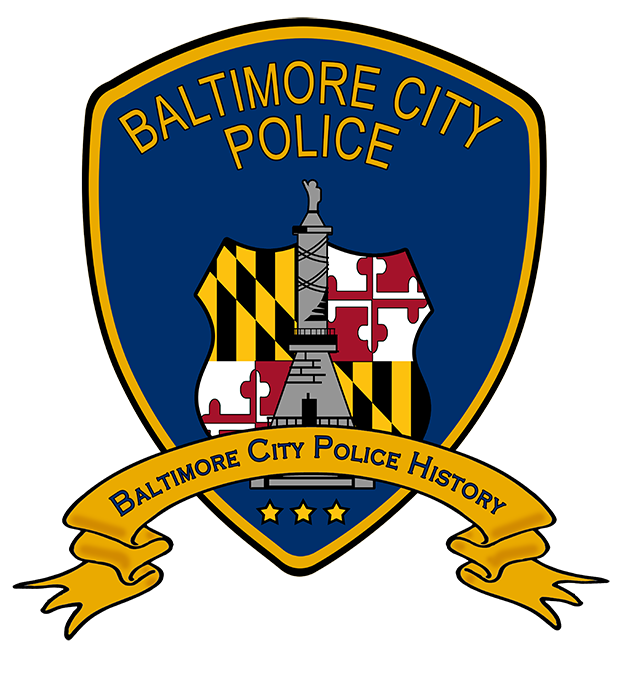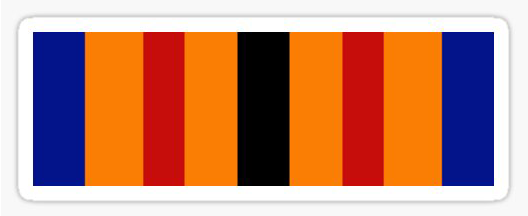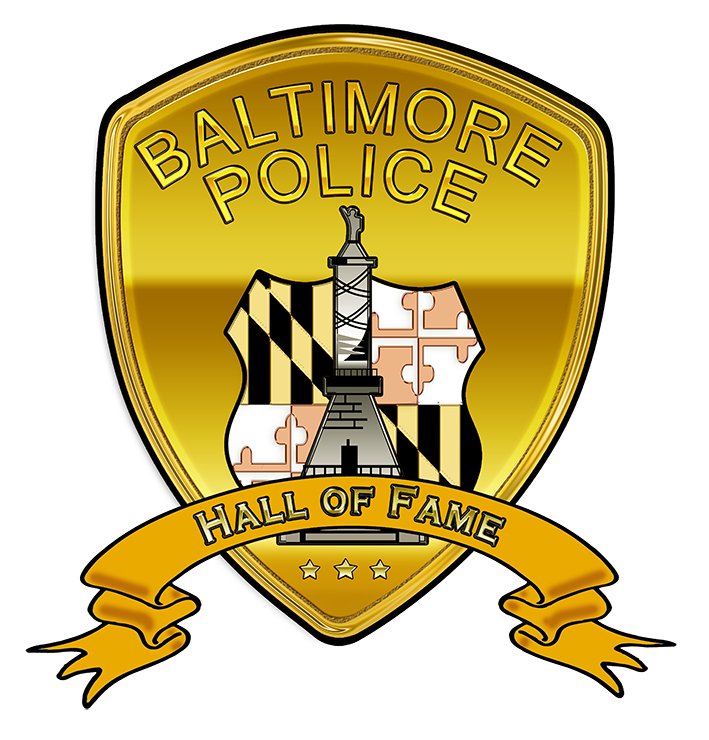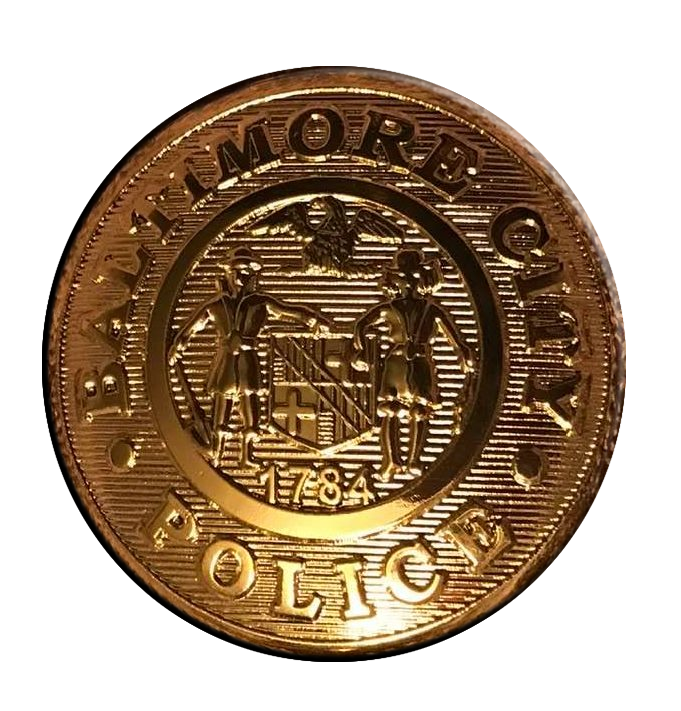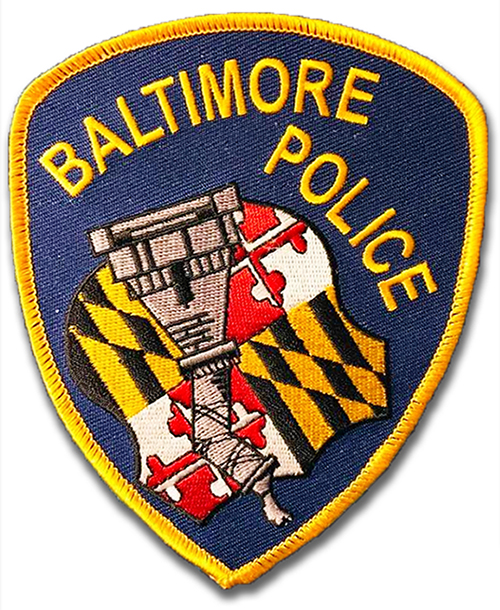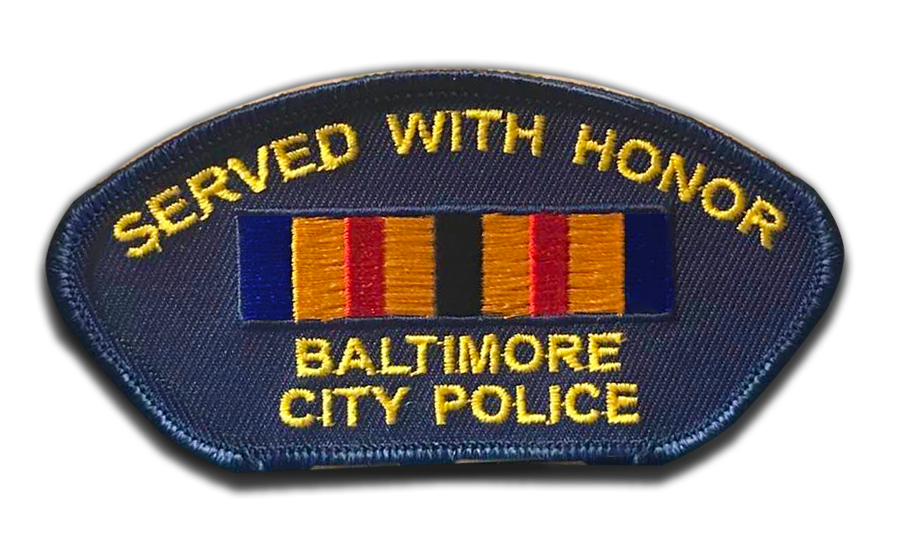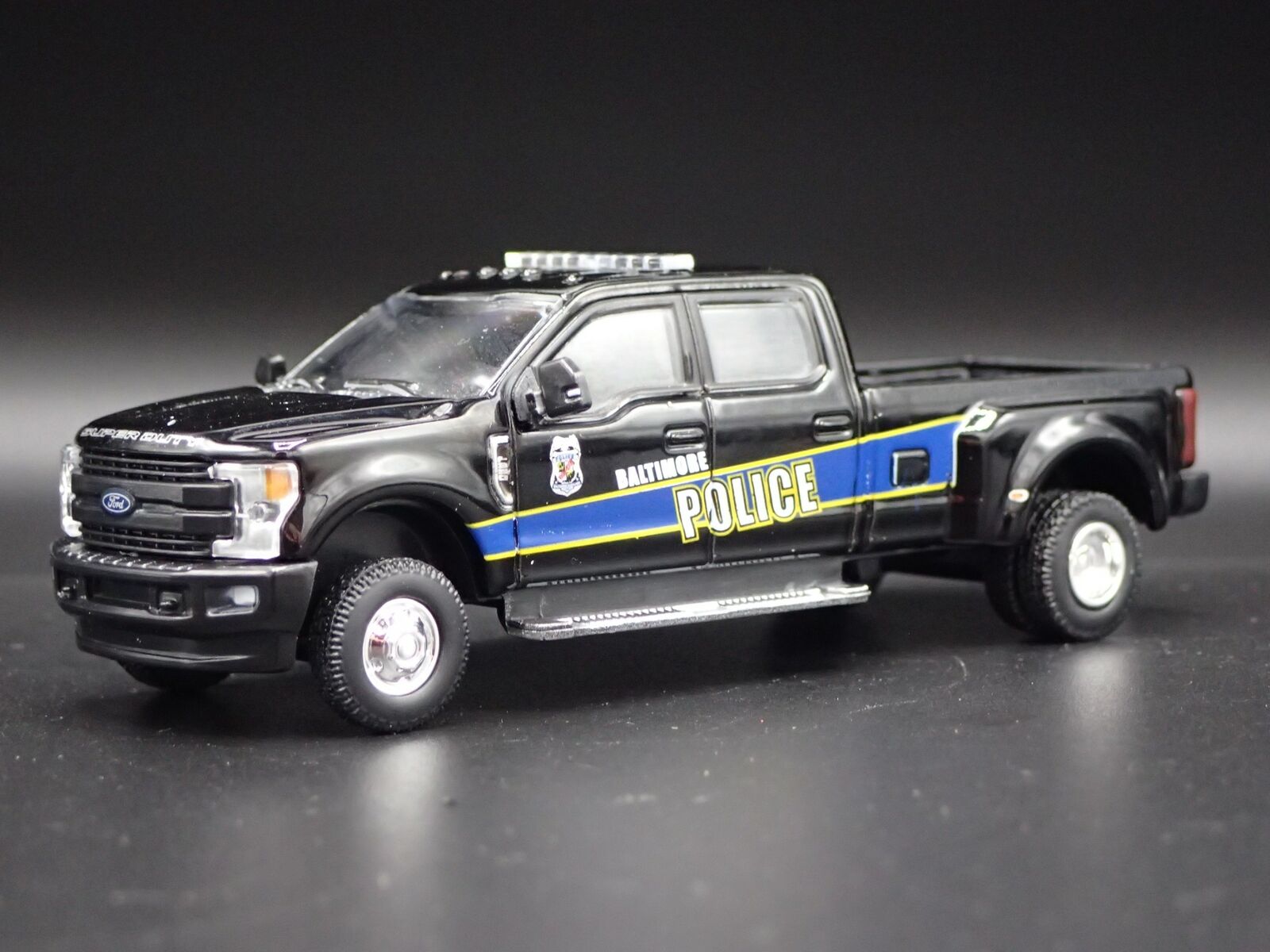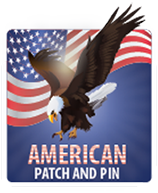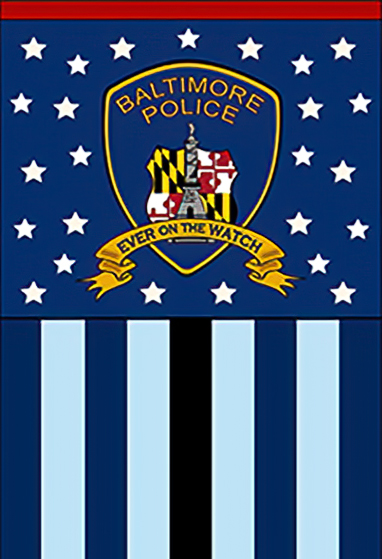
Baltimore City Police
Historical Society Flag
Before 1970, the Baltimore Police Department didn’t have a police flag. It was rumored that then-Police Commissioner Donald D. Pomerleau wanted an honor guard, having seen other departments with honor guard units carrying American flags, state flags, city or county flags, and their departmental police flags. The commissioner knew that to look our best, we would have to have a police flag of our own. So he had someone work on a Baltimore Police flag, and by the end of 1970, the 3rd of December, to be exact, we had our flag. A little more than a year later. Pomerleau would also have his honor guard. It should be noted that prior to the 1972 Honor Guard, we had a kind of Honor Guard within our Mounted Unit, but the official Departmental Honor Guard wasn't founded until 1972. Mounted has always added a certain touch of class to our department, and their Honor Guard was not lacking. However, this is more about the Baltimore Police Flag, a flag that didn’t have the kind of thought or time put into it that it deserved. The 1970s, much like today in Baltimore, were busy and violent; we had large numbers of losses within our department, and Commissioner Pomerleau felt our fallen should be sent off in honor; he wanted the best Honor Guard he could form; had he put the time into seeking a flag that would represent more than just getting our police? After all, our police represent our city and the people that live, work, and spend their recreational time in it, as well as the tourists that come to visit. Baltimore is a beautiful city with outstandingly dedicated police, and as such, it deserves a well-designed flag.
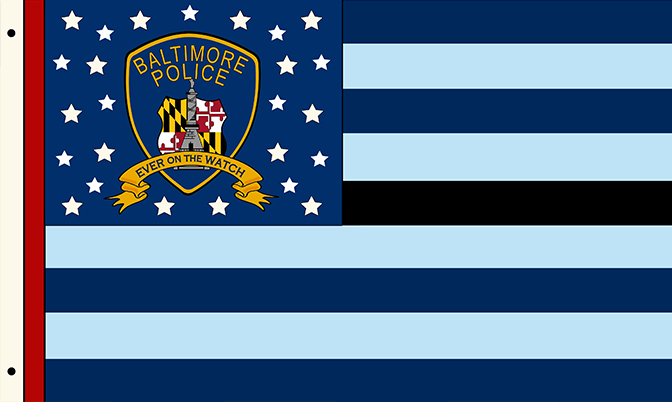 Proposed BPD Flag
Proposed BPD Flag
On December 3, 1970, Commissioner Pomerleau unveiled his flag, a simple light blue field with BALTIMORE in an arched ribbon above our insignia and POLICE in an arched ribbon below our insignia. That's it: light blue, Baltimore Police, and the Maryland Flag embossed in our 4th issue badge. (For FOR MORE INFORMATION - SEE OUR PATCH HISTORY ). The flag had the department’s name embroidered in a ribbon on a light blue hunk of flag-shaped fabric. What our. What the 1970 police flag failed to offer was something other agencies seemed to have overflowing in their departmental flags; cities like New York, Boston, and Chicago, just to name a few, had meaning in their flags. Flags that connect with the police and the community they serve. Our flag was lacking significance, with no ties to the police, the communities, or the people we serve.
We are hoping to correct that with this proposed Baltimore Police Flag, a flag that serves to remember our past, our present, and our future. It will represent our fallen, our injured, our retired, our active, and our future police officers. But not just police officers; this flag represents those we serve, those we protect, and the neighborhoods and communities of Baltimore. It is important that Baltimore's history be represented in our police flag.
First, let's take a look; this is our current flag. As mentioned above, it has a light blue field with no stripes and holds our police emblem, an emblem that has meaning but shouldn't stand alone. Having the shape of our 4th issue Baltimore Police Badge, embossed with our state flag, the state flag holds meaning, as it is a quartered flag that represents the Calvert and Crossland families' coats of arms. Over the badge-flag combo is the Battle Monument, again full of Baltimore City's rich history. Above and beneath this are two simple banners, telling those viewing them that it is our Baltimore Police flag. It could and should say more.
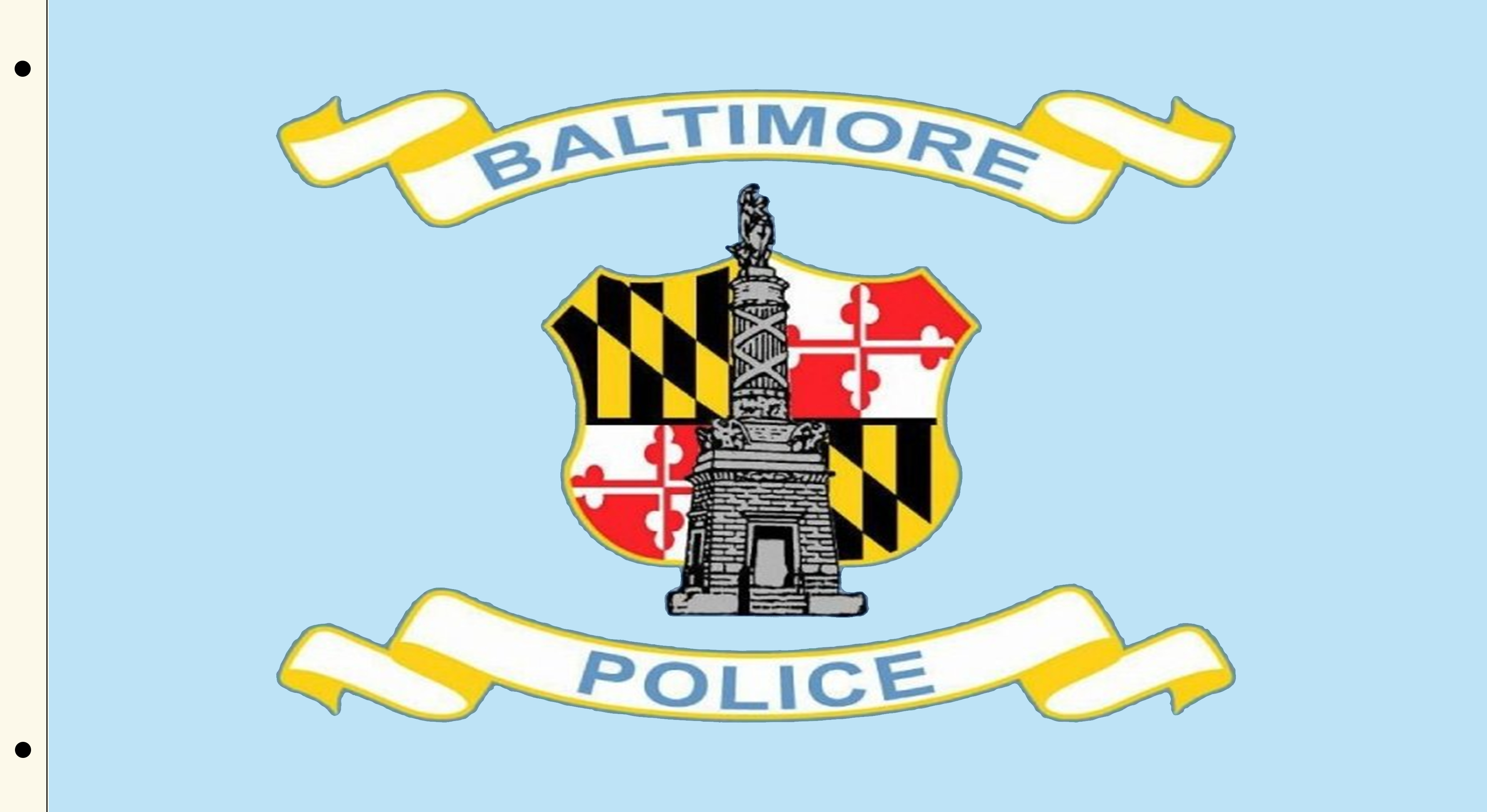
Looking at the Baltimore Police Flag compared to the NYPD Flag, it is obvious our flag was just slapped together.
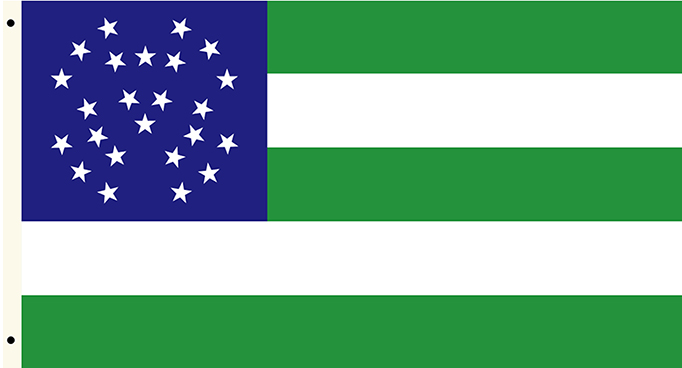
The New York Police Flag and ours—as we already discussed, there is no significance to our flag. But take a look at the New York Police flag. The official flag of the New York City Police Department was created in 1919. It is flown outside precincts and other NYPD buildings. It bears five alternating green and white bars, representing the five boroughs of New York City: Manhattan, Brooklyn, Queens, Staten Island, and the Bronx. There are 24 stars on a field of blue in the left upper corner of the flag. The blue field represents the police department. Twenty-three of the twenty-four stars represent the separate towns and villages that became part of New York City under the Consolidation that took place in 1899. The 24th star represents New York City itself. Of those towns and villages that became part of New York City in 1899, eighteen of them had separate police departments that joined together to become part of the NYPD.

Let’s take the Baltimore Police flag, strip it down to a blank, and build a flag that has meaning.

To start, we took a simple white flag, which, by the way, even a simple white flag has meaning, but we are not ready to wave that flag just yet. First, we'll need to include what is called the "HOIST." Normally, the hoist is made of canvas or nylon material doubled or even tripled over and sewn onto itself, with two or more grommets added for strength and as a way to attach it to a flagpole. After the hoist, we’ll add a vertical stripe about the same thickness, maybe a little wider than that of the hoist but not as wide as any of the nine horizontal stripes we'll be adding in a moment. Next to the vertical stripe, we'll add nine horizontal stripes, one for each of our nine districts. Last but not least, we'll add a field in the upper left-hand corner of the flag. We'll also make a vertical flag version for special events and displays.

Next to the Hoist, we added a Vertical Stripe

From there, we included nine Horizontal Stripes

Then we added a Field to the upper left corner 
Then we started adding color and explaining what these colors meant. Let's first talk about something this flag should represent. Since a flag should have meaning, it should tell about our past, our present, and our future. To represent our past, we took the color from the 1970 flag and used it in four of the stripes on our proposed flag.

The Past: As mentioned, the light blue comes from our old flag and will be used on four of the nine stripes, not just to represent our history, those who have served, those who have retired, and our old flag, but because our department initially had just four districts.
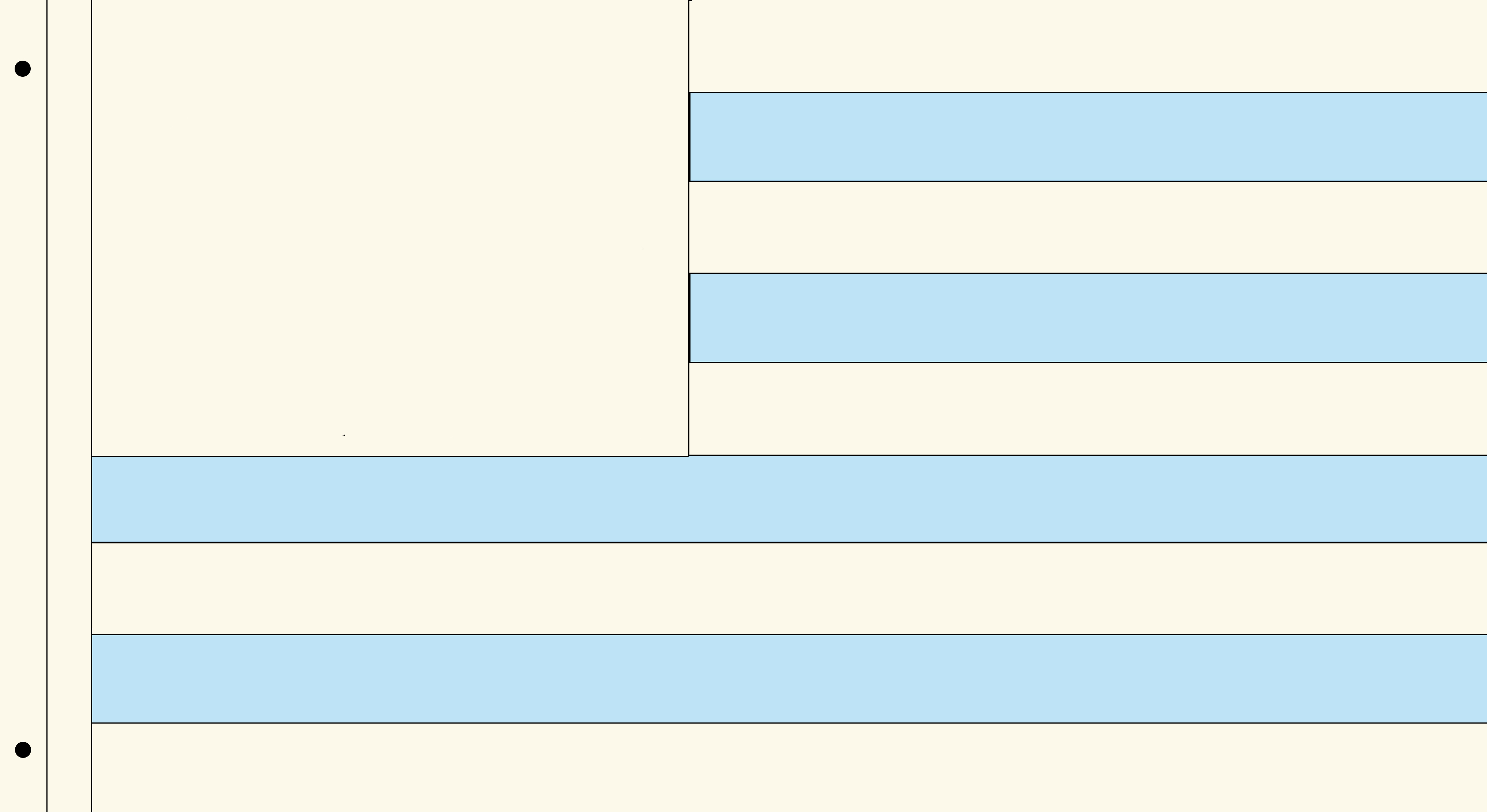
The Present: The next four stripes alternate between light blue and dark blue, two down from the top and two up from the bottom. The dark blue stripes about the shade of our uniformed pants will represent our active police and the future, or those who will someday wear that Baltimore Police Blue on their trousers.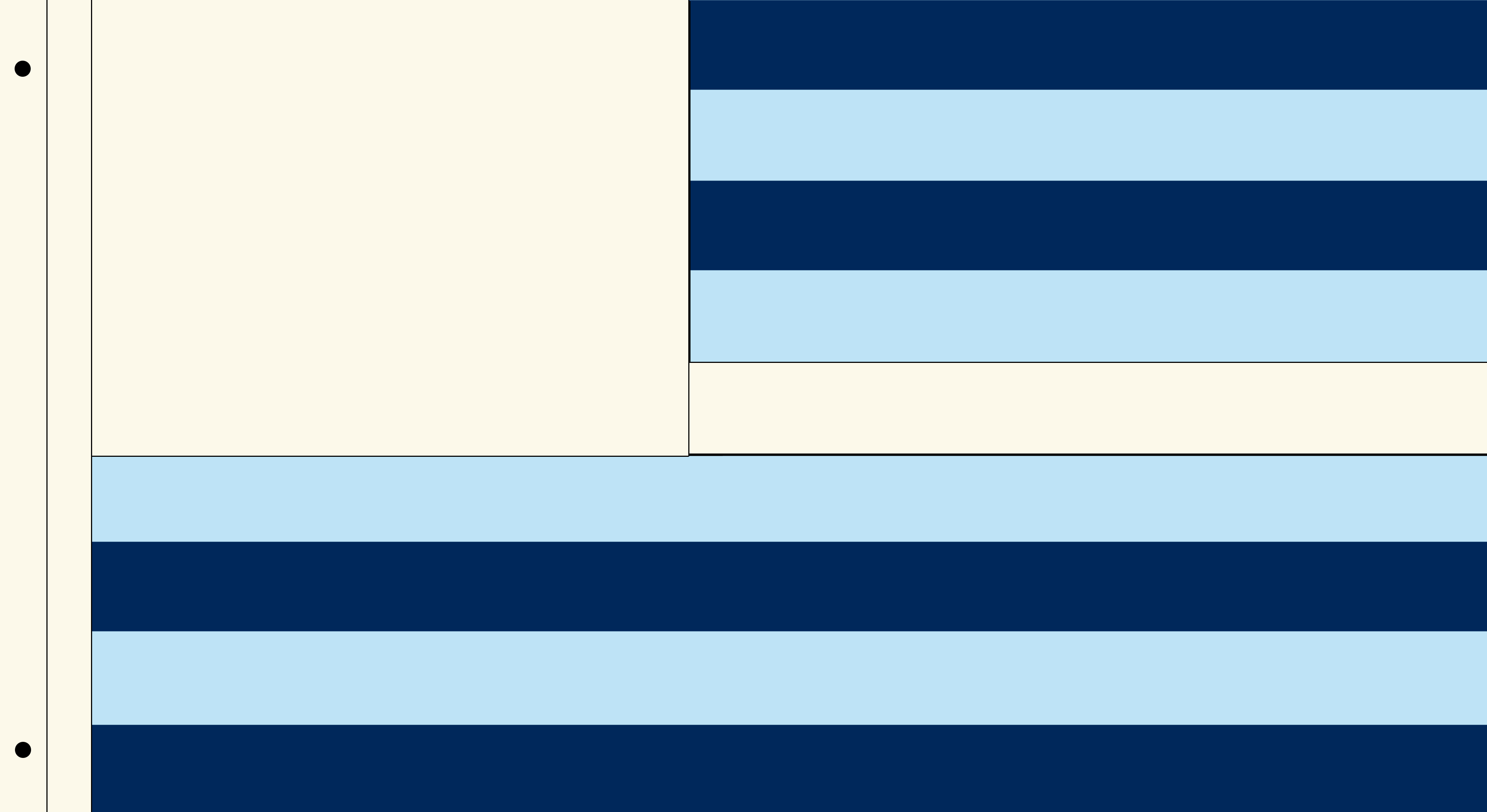
After this, we filled in that 9th horizontal stripe with black to
represent, and never let us forget our fallen.
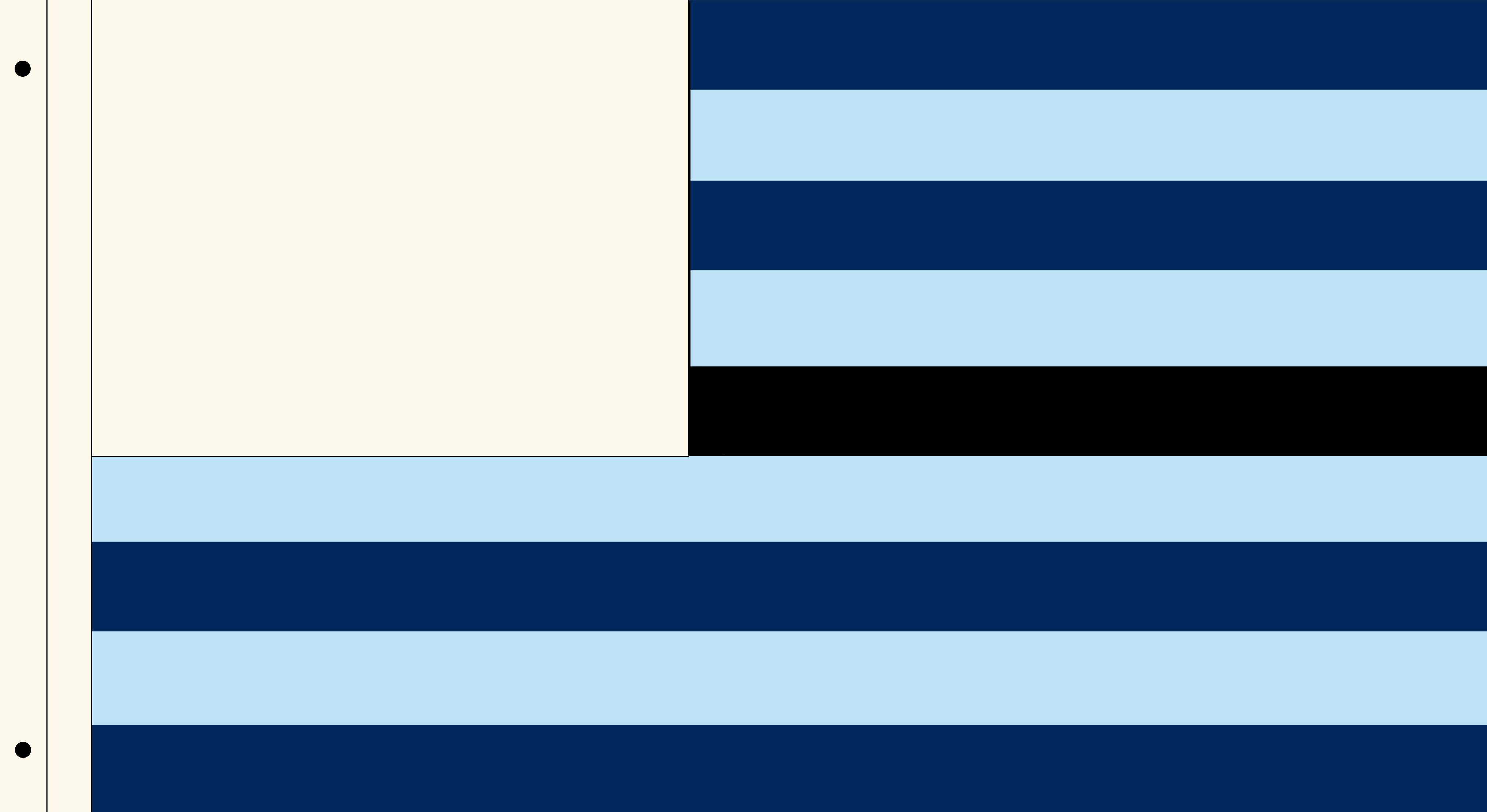
Now for the vertical stripe that we put next to the hoist,
we colored that one red to represent our injured
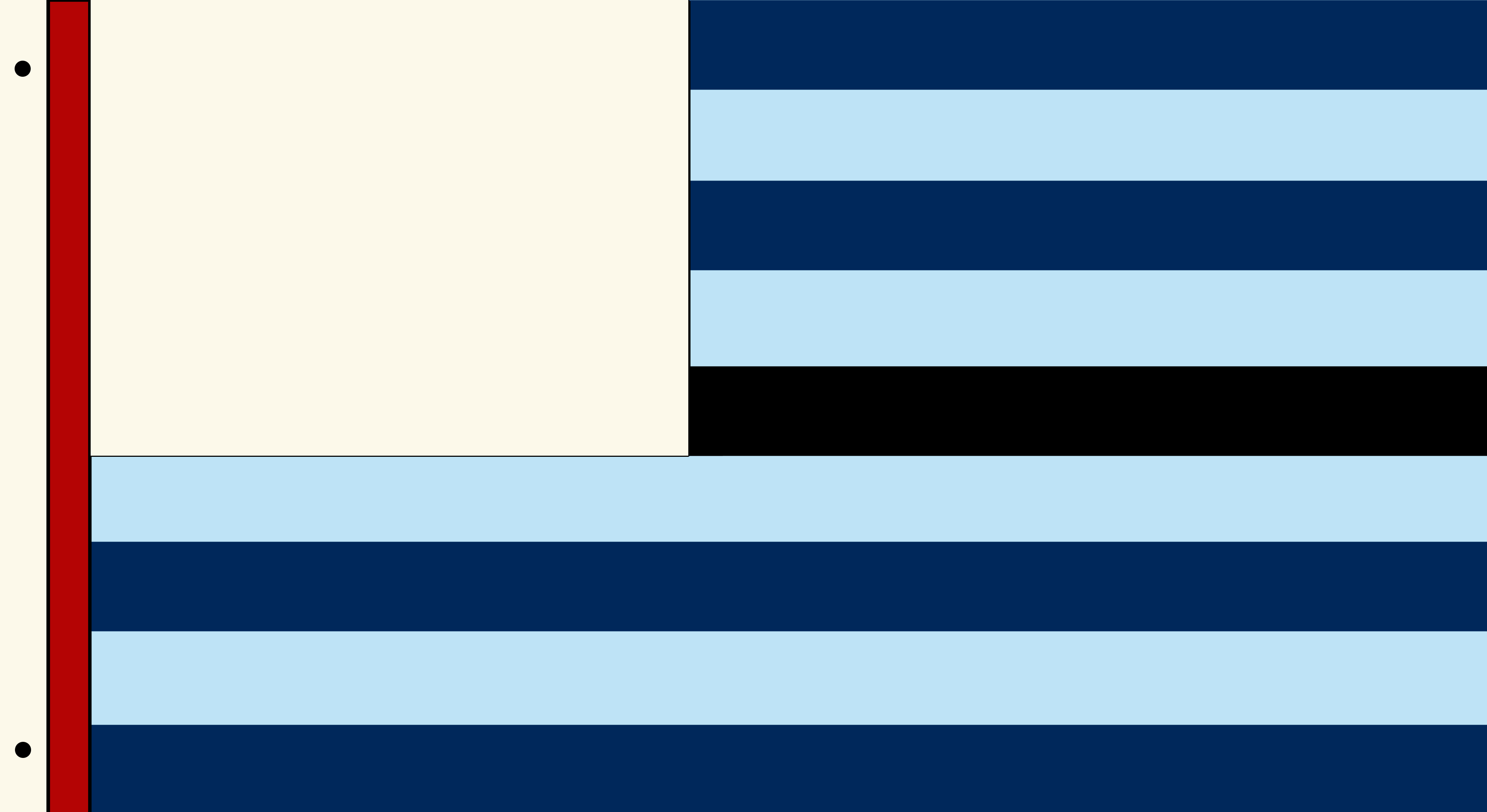
To start work on designing the "Field" in the upper left corner of the horizontal flag, or the top center of our vertical flag, we used the same dark blue that was used for the active officer's in the horizontal stripes. The "Field" will blanket the city with our motto. A motto that we have had since 1880 and whether you knew the words or just what they stood for, our officers since the day they were sworn in have always lived by a code that has had us Ever Ready, Ever Faithful and Ever on the Watch
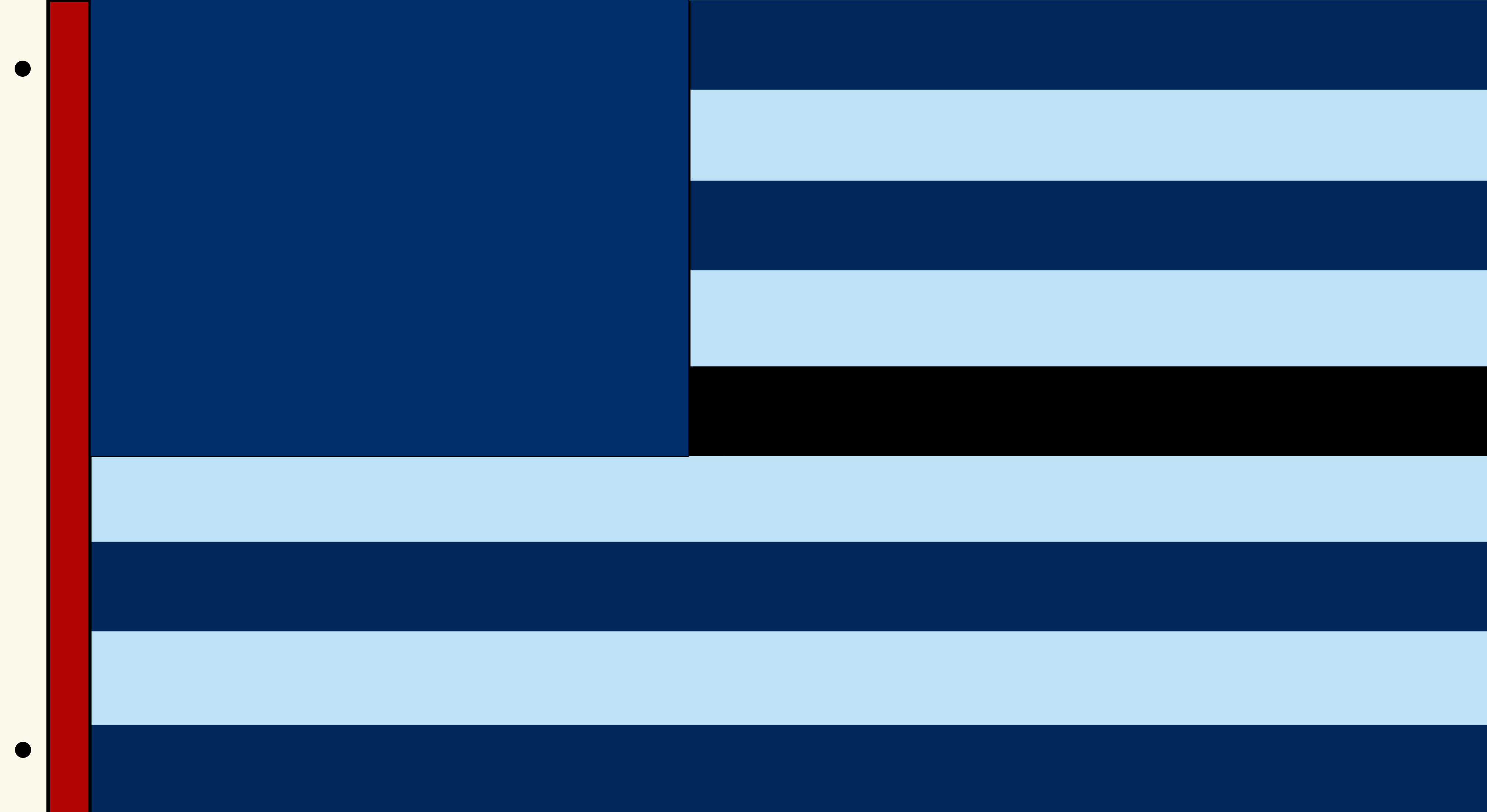
As important to a flag as the colors and the stripes are the stars. We initially added 14 large stars representing our 14 seats of city council— good or bad, it represents those who took an oath to serve and protect those council districts—past, present, and future.
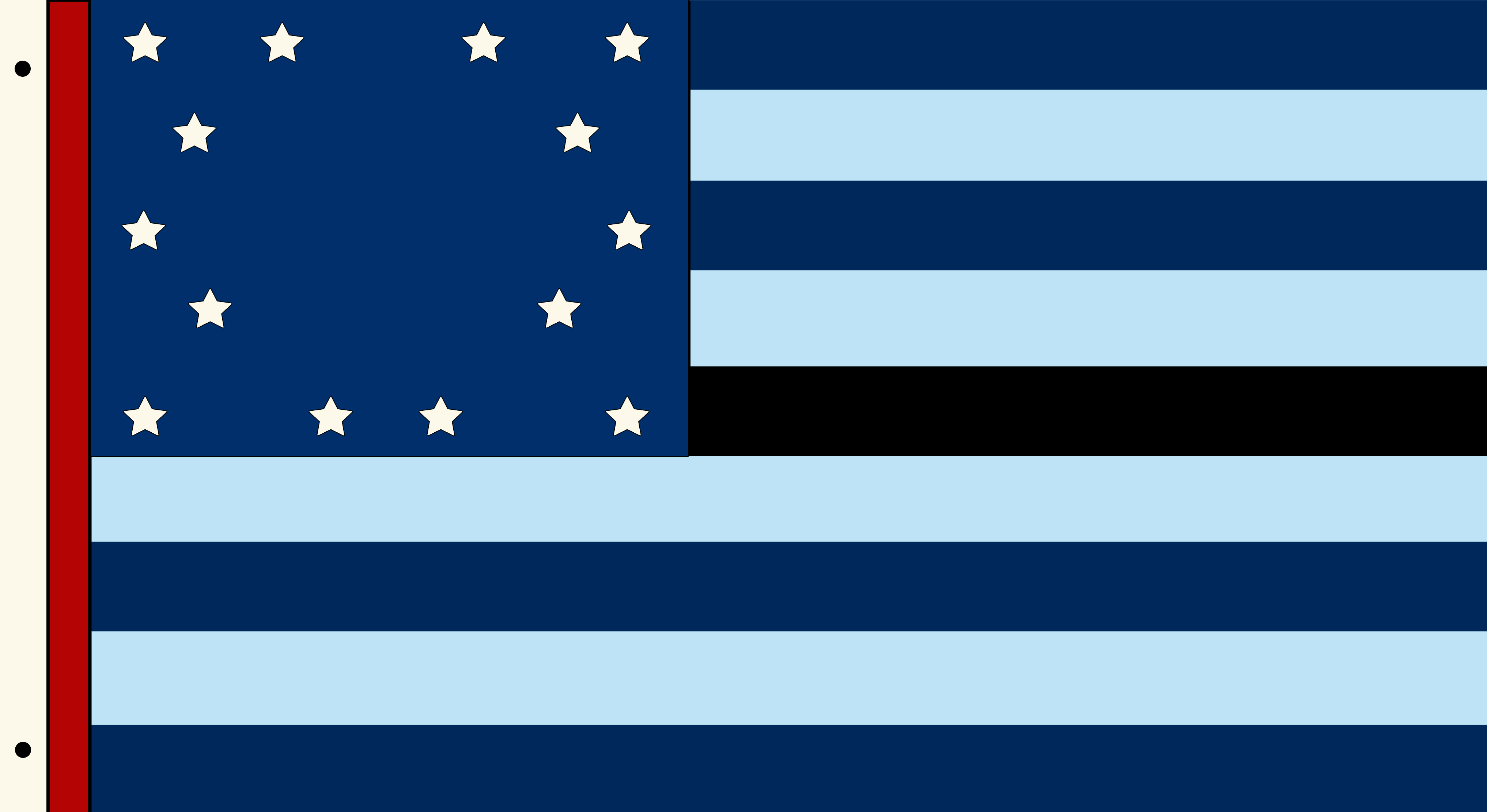
Then we added our Baltimore Police patch, a patch that has built-in meaning, with a banner filled in with our 1880 motto, Ever on the Watch. This is so people will recognize right off the bat that this flag is the flag of their Baltimore Police Department Historical Society.
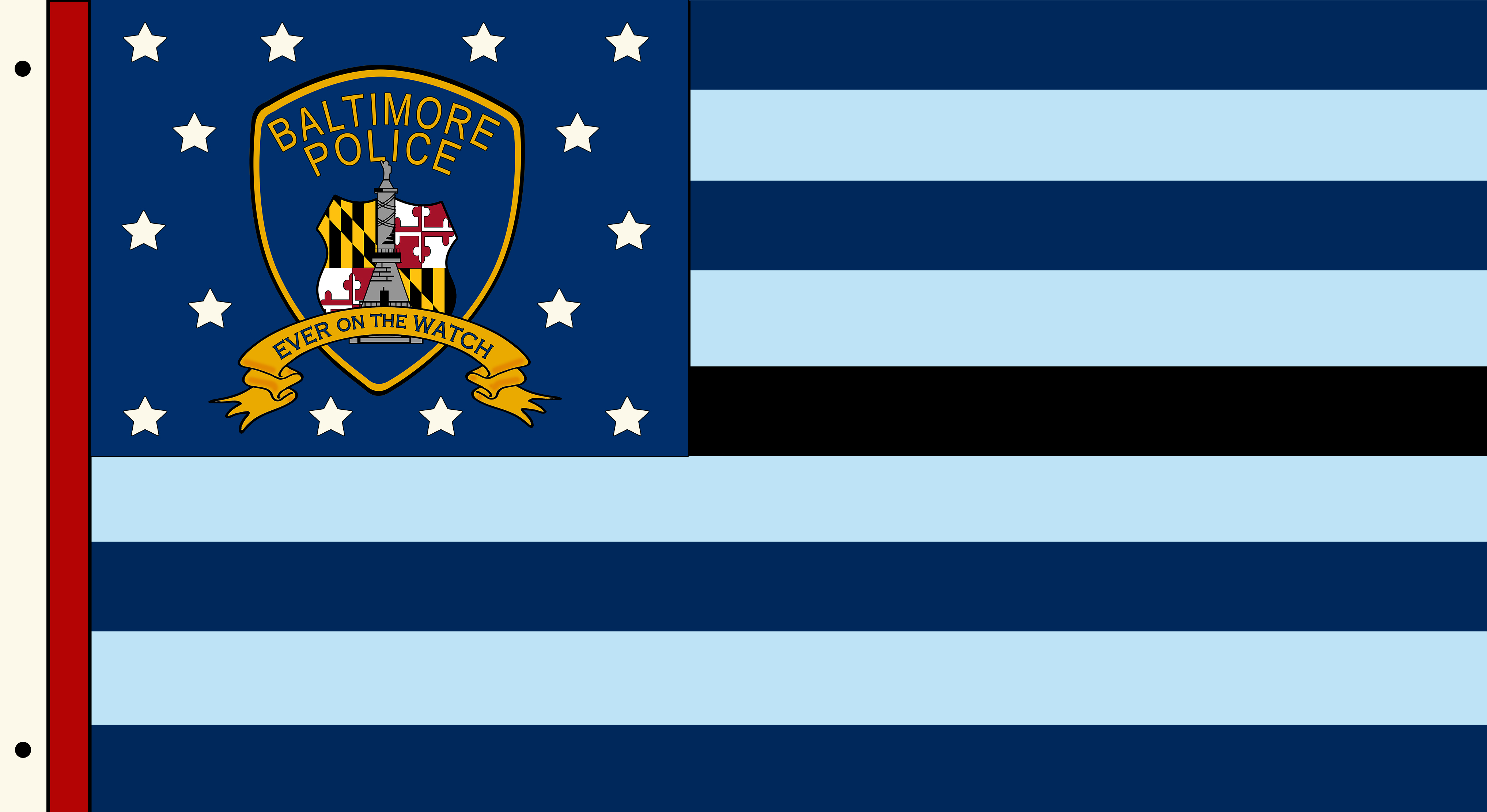
Now going back to the stars and our Baltimore Police History, the 20-point badge, aka the 3rd ISSUE, was first worn in 1862 and had 20 points to represent the 20 wards our police served and protected. Here we added 14 large stars for the 14 council seats. We want to add smaller stars to represent the people that live in our city, those that lived in the city, or those that someday will. Again, we wanted to focus on the past, present, and future. It is not just the past, present, and future of our police; it should also include the past, present, and future of our city's residents, some of whom we had great relations with and others who were not so good. That is not to say that law-abiding people were always good, and criminals were always bad. There were many times when the roles of those who were law-abiding and the roles of those with criminal records were not what one might suspect they would be with their police.
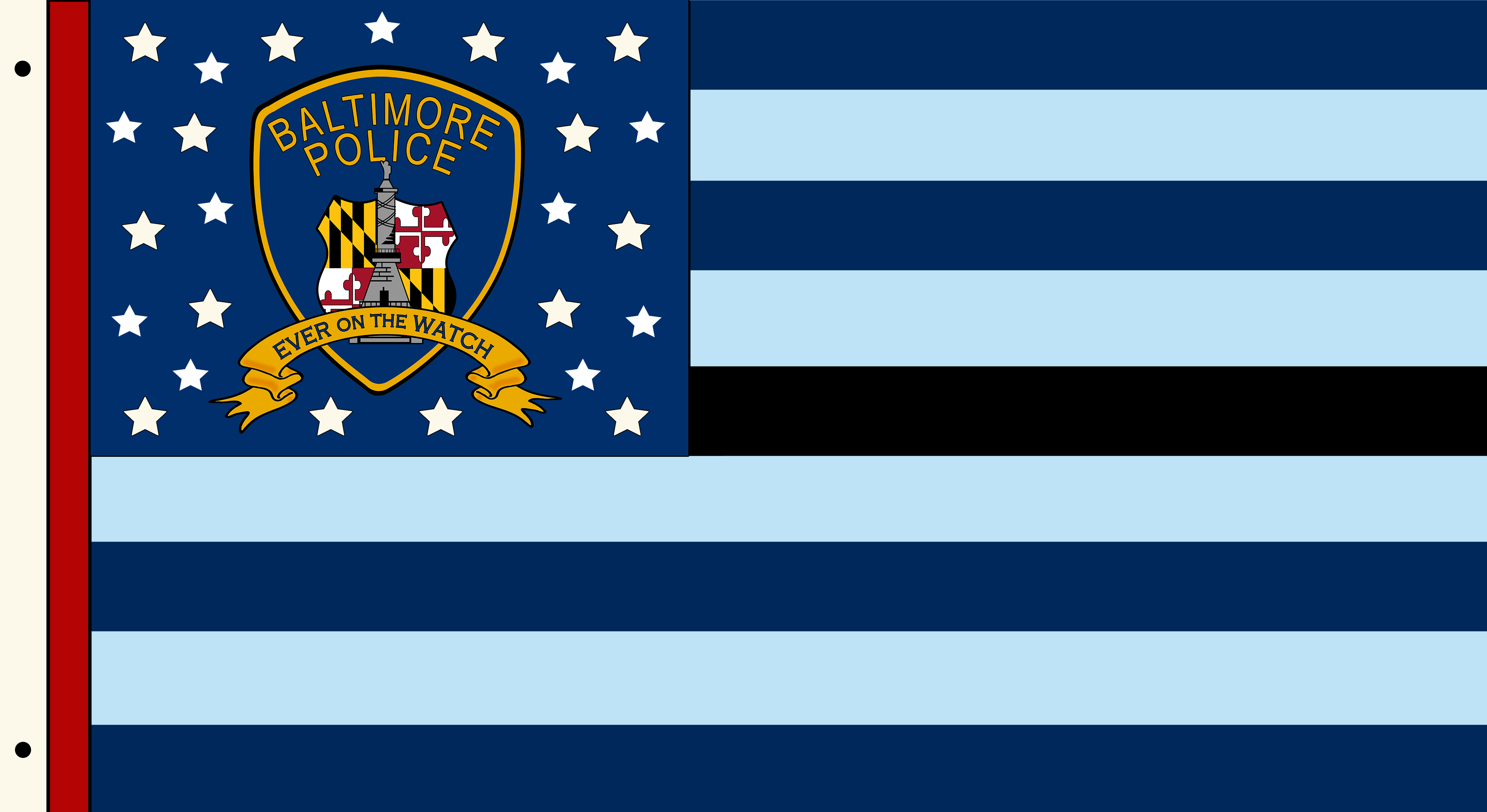
Our intent was to offer this to the police department so our police flag might have meaning. But after all the work we put in, we felt it might be better to keep it as our historical society police flag. This will be the perfect flag to represent all that we represent—our past, our present, and our future.
NOTE: When Ken had a meeting with the last commissioner (Michael Harrison), he presented several of his ideas, and the commissioner said, while he liked the ideas, he doesn't make any decisions on his own; instead, he forms a committee, and after some consideration, they take a vote and either vote an idea in or pass on the idea. Needless to say, Ken was not thrilled. Here, the leader of a police department sends his men and women out on the streets to make split-second decisions that could cost them their lives. Men and women who don't have the benefit of a committee to help with lifesaving or life-threatening decisions. So, Ken put all his ideas in a folder and never met with PC Harrison again. He then took his flag design and the service ribbon idea to our committee, a committee of four, and asked what we thought about taking these two ideas and using them for our own. Adopting the flag as our own historical society's BPD flag and using the ribbon to make hat patches for our retired and active members to show their pride in their service to the city. Ken's committee worked differently than the former commissioners; in our case, Ken presented his two ideas and said, "I am going to initate this flag as the Baltimore Police Historical Society official police flag and this ribbon as our served with honor ribbon." Explaining what the stripes, stars, and colors in each meant, he asked if there were any objections. Well, considering that while the patch was being designed, it was discussed, changes were made, and the design was agreed upon, there were no objections there. Seeing as how the flag has so much meaning and is for a historical society, he again received no objections, and both the flag and service ribbon were adopted for our use on that day in 2019.

Further Flag Research
During our research, we also learned that when hanging a horizontal flag vertically, someone will almost always hang that flag backward, or it will just naturally become backward through a window or door opening. So we made a vertical version of our proposed flag that can be used if needed. We just figured for the sake of completeness that it might be worth presenting, with this design giving us a version of our flag that cannot be hung wrong and would also serve our Honor Guard in a way that other flags have failed.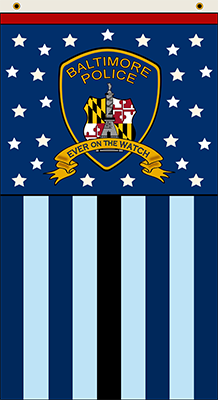

Donations
Donations help with web hosting, stamps and materials, and the cost of keeping the website online. Thank you so much for helping BCPH.


POLICE INFORMATION
Copies of: Your Baltimore Police Department Class Photo, Pictures of our Officers, Vehicles, Equipment, Newspaper Articles relating to our department and/or officers, Old Departmental Newsletters, Lookouts, Wanted Posters, and/or Brochures Information on deceased officers and anything that may help preserve the history and proud traditions of this agency Please contact retired detective Kenny Driscoll.
This email address is being protected from spambots. You need JavaScript enabled to view it.

NOTICE
How to Dispose of Old Police Items
Please contact Det. Ret. Kenny Driscoll if you have any pictures of you or your family members and wish them remembered here on this tribute site to honor the fine men and women who have served with honor and distinction at the Baltimore Police Department.
Anyone with information, photographs, memorabilia, or other "Baltimore City Police" items can contact Ret. Det. Kenny Driscoll at This email address is being protected from spambots. You need JavaScript enabled to view it. follow us on Twitter @BaltoPoliceHist or like us on Facebook or mail pictures to 8138 Dundalk Ave., Baltimore, Md. 21222
Copyright © 2002 Baltimore City Police History: Ret Det. Kenny Driscoll
You May Like

